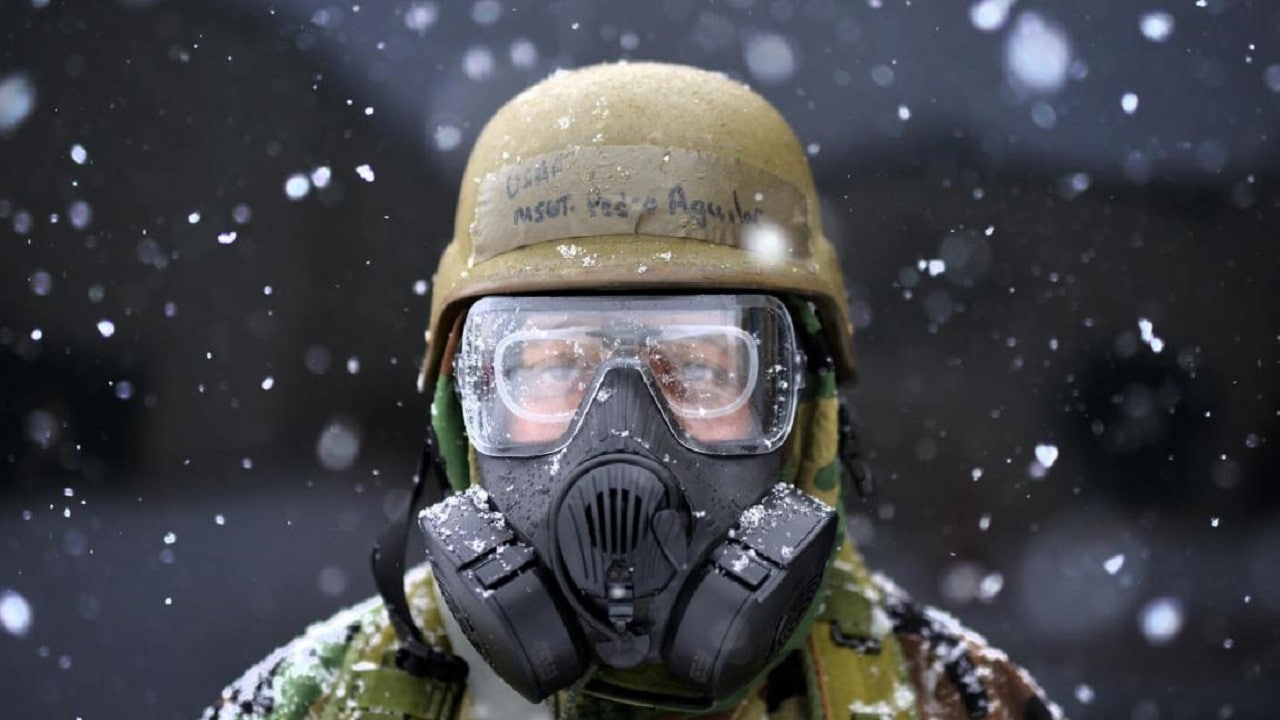Claims Russia Used Chemical Weapons in Attack in Mariupol Trending on Social Media – Reports circulated on social media on Monday that Russian forces in Ukraine may have engaged in chemical warfare in the port city of Mariupol, causing Ukrainian soldiers and civilians alike to develop respiratory illnesses. 1945 is unable to independently confirm these reports at this time but have reached out or our sources in Ukraine for more information.
“Russian occupation forces used a poisonous substance of unknown origin against Ukrainian military and civilians in the city of Mariupol, which was dropped from an enemy [unmanned aerial vehicle]. The victims have respiratory failure, vestibulo-atactic syndrome,” the Azoz Regiment, a unit of the National Guard of Ukraine, posted to the Telegram platform on Monday.
Serhii Sternenko, a Ukrainian activist and YouTuber, made similar claims.
“Testimonies of soldiers and civilians affected by the Russian chemical attack in Mariupol,” Sternenko (@sternenko) tweeted while sharing a video of alleged victims. That video had been viewed more than 12,000 times since it was posted.
Anton Gerashchenko, adviser to the Minister of Internal Affairs of Ukraine, also took to Twitter on Monday, posting, “ATTENTION. Chemical weapons are used against Ukrainian defenders in #Mariupol! russia openly crosses all boundaries of humanity and openly declares it, while Ukraine is still asking for heavy weapon.”
The Pentagon has not confirmed the social media reports, but had said it is aware of the claims.
“These reports, if true, are deeply concerning and reflective of concerns that we have had about Russia’s potential to use a variety of riot control agents, including tear gas mixed with chemical agents, in Ukraine,” Pentagon press secretary John Kirby said via a statement, and added that the Department of Defense (DoD) will continue to monitor the situation closely.
British Foreign Secretary Liz Truss also said her government was working “urgently” to verify details the alleged attack.
“Reports that Russian forces may have used chemical agents in an attack on the people of Mariupol. We are working urgently with partners to verify details. Any use of such weapons would be a callous escalation in this conflict and we will hold Putin and his regime to account,” tweeted Truss (@trussliz) on Monday evening.
Past Chemical Attacks
Moscow has been accused of employing chemical weapons in Chechnya and Syria, in violation of international law. However, Russia and its Syrian ally have largely denied such claims that chemical weapons were used in the decade-long Syrian Civil War.
The largest single use of chemical weapons in Syria reportedly occurred in August 2013, in the Damascus suburb of Ghouta, when hundreds were killed in a sarin gas strike widely blamed by Western governments on Syrian government forces.
According to Reuters, chemical weapons production, use, and stockpiling is banned under the 1997 Chemical Weapons Convention (CWC). Only Egypt, North Korea, and South Sudan have not signed or ratified the international arms control treaty. Israel has signed but not ratified.
Now a Senior Editor for 1945, Peter Suciu is a Michigan-based writer who has contributed to more than four dozen magazines, newspapers and websites. He regularly writes about military hardware, and is the author of several books on military headgear including A Gallery of Military Headdress, which is available on Amazon.com. Peter is also a Contributing Writer for Forbes.

